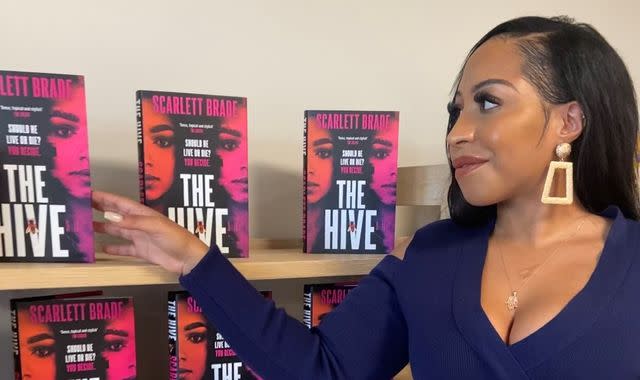Black authors make progress but change remains slow in the publishing industry

Once upon a time, not that long ago, finding books written by black authors could be challenging - often tucked away in a dark dusty corner, under a section titled "BAME".
"You kind of crawl to the back of the major shop, down a secret tunnel, pass the cobwebs, go through some sort of initiation to find the black section," joked bookseller Carolynn Bain.
In order to have access to black books for herself and her children, Carolynn used to pay for books to be sent from the US, Canada, Nigeria and Kenya.
She said she knew these books were out there, and even attended protests with her children to demand better access.
She added: "My children grew up and I went on a march and they were marching with me. Nothing had changed.
"These books still weren't available.
"And the more I looked into it, the more I looked saw the massive discrepancies.
"For example, I have never walked into a major bookstore and seen poetry by a black author."
Out of frustration, last year Carolynn set up Afrori Books, Brighton's first and only bookshop dedicated to promoting black authors, also offering anti-racism workshops for children and a "safe space" for honest and frank conversations about experiences of discrimination.
But despite providing the space which is clearly welcomed, Carolynn still struggles to get some in the publishing industry to appreciate its value.
She said: "Sometimes, we struggle to get authors to come down, because their publishers won't pay their travel expenses.
"Can you fathom that? Like you won't pay their travel expenses to come to an event where they will sell books."
Things are improving, though, and more black authors are getting published.
Scarlett Brade's debut psychological thriller, The Hive, was published by Zaffre this summer and she recently travelled to Afrori Books to promote her work.
But despite her success, Scarlett was not surprised there were no black authors currently in the top 50 Amazon best sellers list.
It has nothing to do with the quality of work, she argued.
Scarlett said: "It's got a lot to do with marketing and publicity, you could write the best story in the world.
"But unless it's being seen on a regular basis by an obscene amount of people, it's the only way it's going to sell.
"I think as black authors we need more visibility."
However, she does recognise there has been change.
"There are more black authors and more people of colour working within the publishing industry, which is very important," she said.
But it is also important black authors get to tell whatever stories they like, and are not just limited to telling the tales of black trauma.
Scarlett said while these books are important and have inspired her along the way it was important that The Hive "had nothing to do with racism, that wasn't a running theme", but instead a story everyone could relate to.
Ellah Wakatama, editor-at-large at Canongate, one of the leading independent publishers, has enough accolades to fill a book of her own after two decades in the industry.
Her role now is to bring in around six titles a year, often directly from authors.
But she added: "The thing I love best is the editing of the book."
Ellah champions black writers, her face lighting up when describing a project she is currently working on, a book called Losing the Plot by Derek Owusu.
She said: "Most of the writers that I know have never had a problem creating.
"All too often the barriers are within my own industry."
She said the biggest change she had seen was volume when it comes to black writers, with more and more of their books making it onto the shelves.
This is because other black writers have paved the way and proved that readers will pick up their books.

 Yahoo News
Yahoo News 
